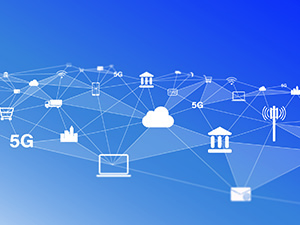 After several delays major service providers AT&T and Verizon are expected to continue their 5G rollouts as early as January 19th. Delays were created because airline warnings were issued: the 5G signal may be cause interruptions with altitude readings in aircraft landing at airports close to 5G towers.
After several delays major service providers AT&T and Verizon are expected to continue their 5G rollouts as early as January 19th. Delays were created because airline warnings were issued: the 5G signal may be cause interruptions with altitude readings in aircraft landing at airports close to 5G towers.
However, after further investigations, and service providers opting to lower the power for certain cell towers around airports, the roll out has been greenlit to continue forward.
What is 5G and How Will You Benefit from It?
The fifth-generation wireless technology, or 5G, provides greater internet speeds and performance through extra bandwidth. This includes features that some experts believe could usher in a new era of internet-connected tech. The CTIA, which represents the wireless industry, confirmed that AT&T and Verizon are preparing to turn on 5G transmitters on January 19th.
One of the greatest benefits to 5G is its vastly improved network speeds. The previous generation (4G) speeds are theoretically rated to go as fast as 100 megabits per second in a perfect lab environment. However, 5G has the potential to reach 10 gigabits per second, making 5G a viable option for businesses to connect around the world. Companies will be able to transfer significant data loads across the internet through a strong 5G connection.
Another benefit 5G brings to the table is lower latency. This is the time between data being sent and received. Higher latency results in noticeable lag times. When you are watching media online over your mobile connection, the video you are watching will always be slightly behind the live video, which is a result of the latency you’re experiencing. Lower latency offered through 5G service can significantly improve the functionality of online data driven applications. 5G rollout is expected to be a significant variable in IoT (internet of things) related businesses and markets.
Lastly, 5G will allow for greater device capacity over the network. Networks are not unlimited and can only handle a set number of devices and data. As businesses grow the number of clients connecting to the internet grow as well. The 4G network can’t handle the larger loads of clients. 5G is estimated to support ; 4G could only support 2,000 devices in a similar range.
5G is expected to make our lives easier by vastly improving the data capacity and load time in which our networks are connected over the 5G network. It is anticipated that 5G will bring new technologies and innovations that have yet to even be discovered. If you’re interested in learning more about how data and networks are handled and can be improved at your office, give us a call today!



